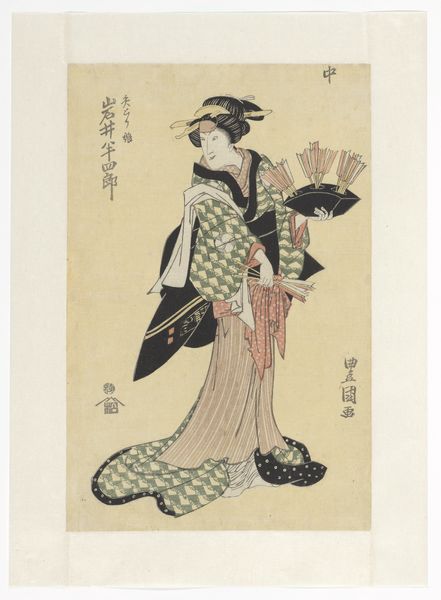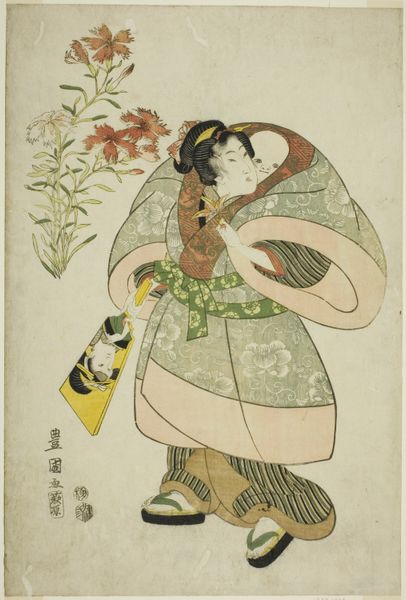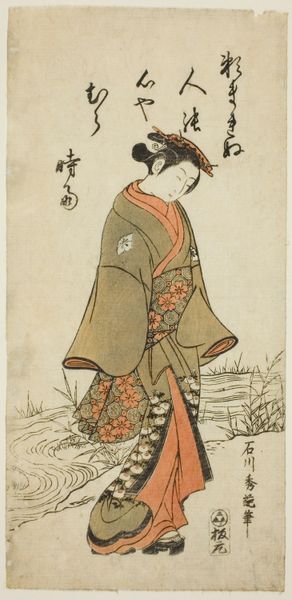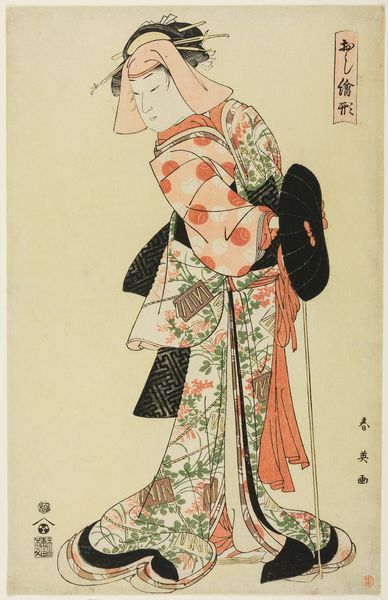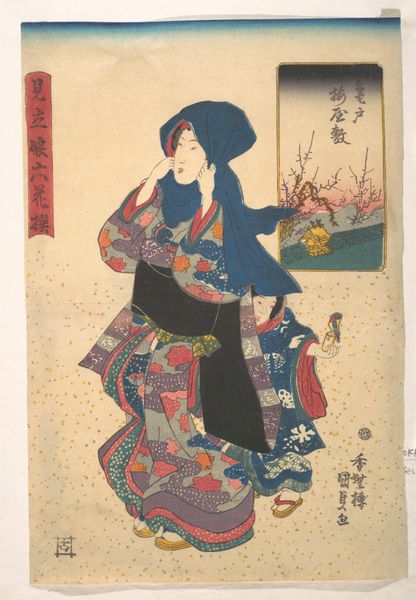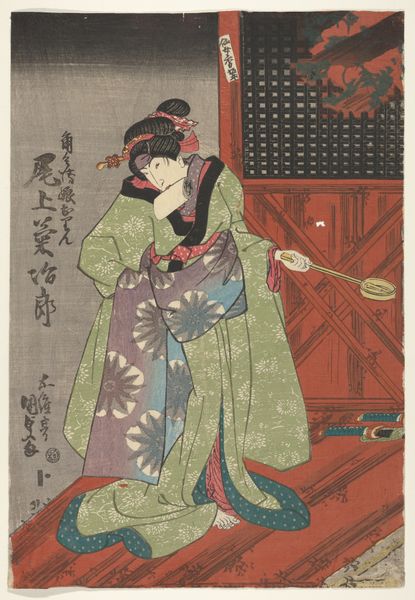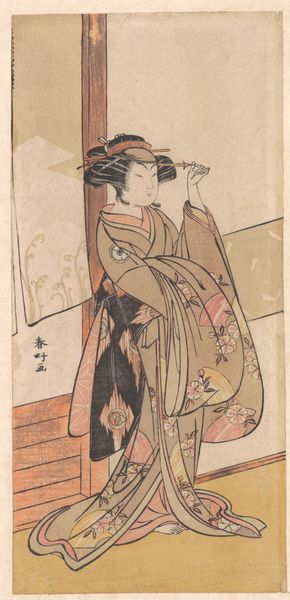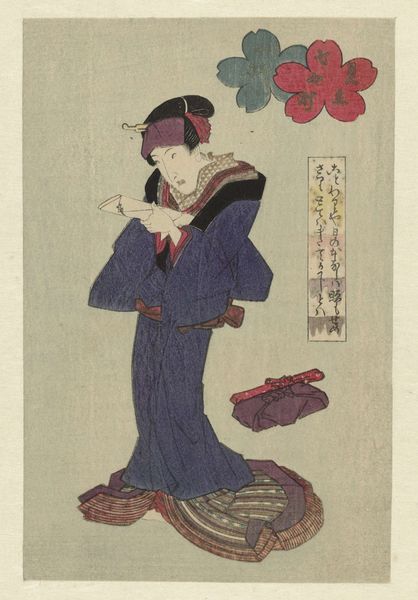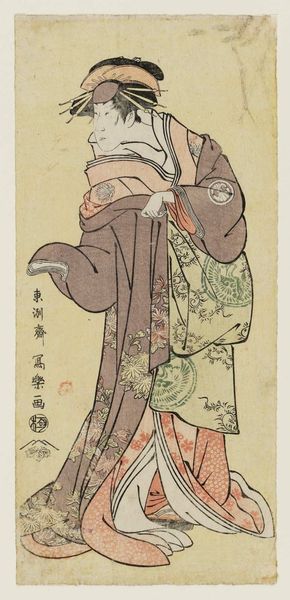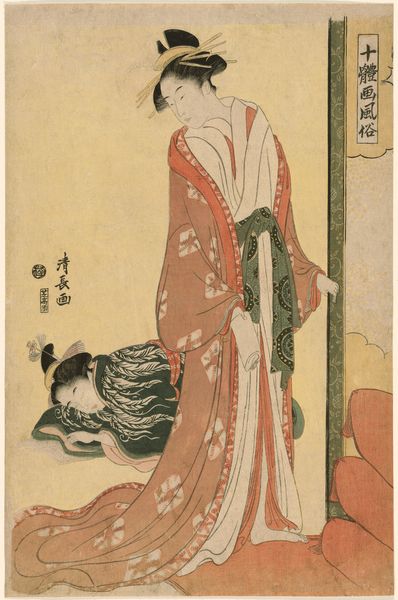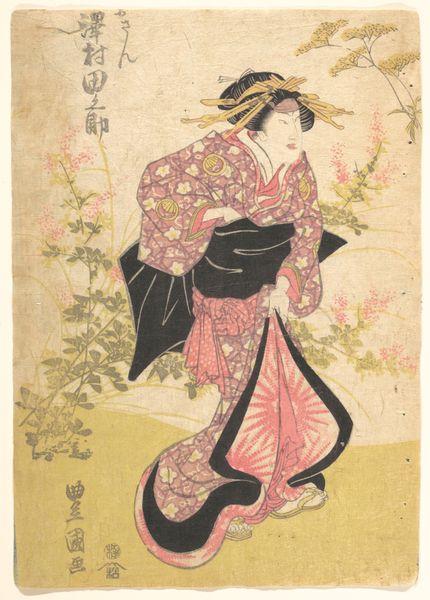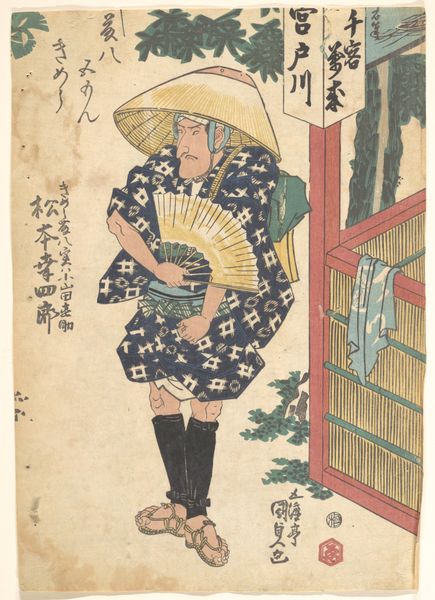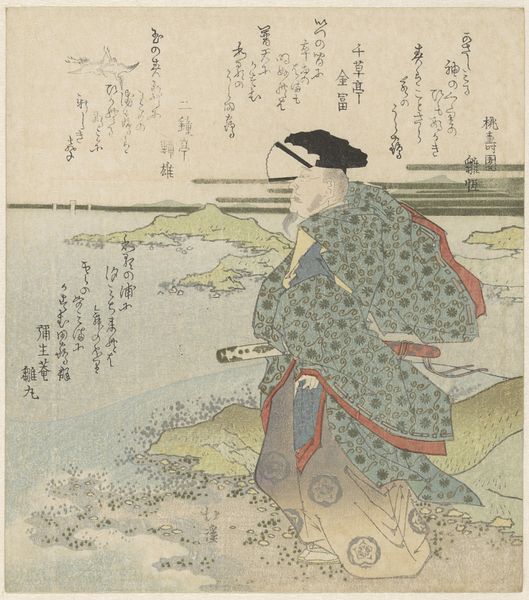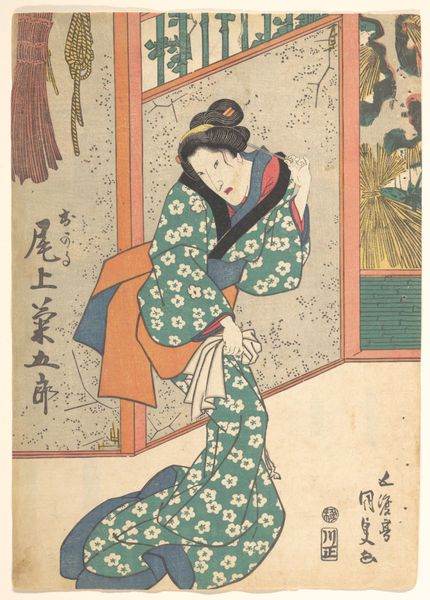
Dimensions: height 387 mm, width 263 mm
Copyright: Rijks Museum: Open Domain
Utagawa Kunisada created this woodblock print depicting Concubine Mekame in the snow with an umbrella. It's a product of 19th-century Japan, a time of strict social hierarchies and artistic conventions. This image, with its delicate lines and muted colors, evokes a sense of elegance and restraint, reflecting the aesthetic values of the Edo period. But beyond its surface beauty, it also speaks to the social realities of the time. Concubines like Mekame held a unique position in society, often educated and cultured, yet also subject to the whims of powerful men. Kunisada’s portrayal of Mekame suggests a certain ambiguity. Is she a figure of admiration, embodying feminine ideals? Or is she a symbol of the constraints placed on women in a patriarchal society? As historians, we can delve deeper into this artwork, examining historical texts, social customs, and artistic traditions to understand the complexities of its meaning. This print reminds us that art is not created in a vacuum but is always shaped by the social and institutional forces of its time.
Comments
No comments
Be the first to comment and join the conversation on the ultimate creative platform.
